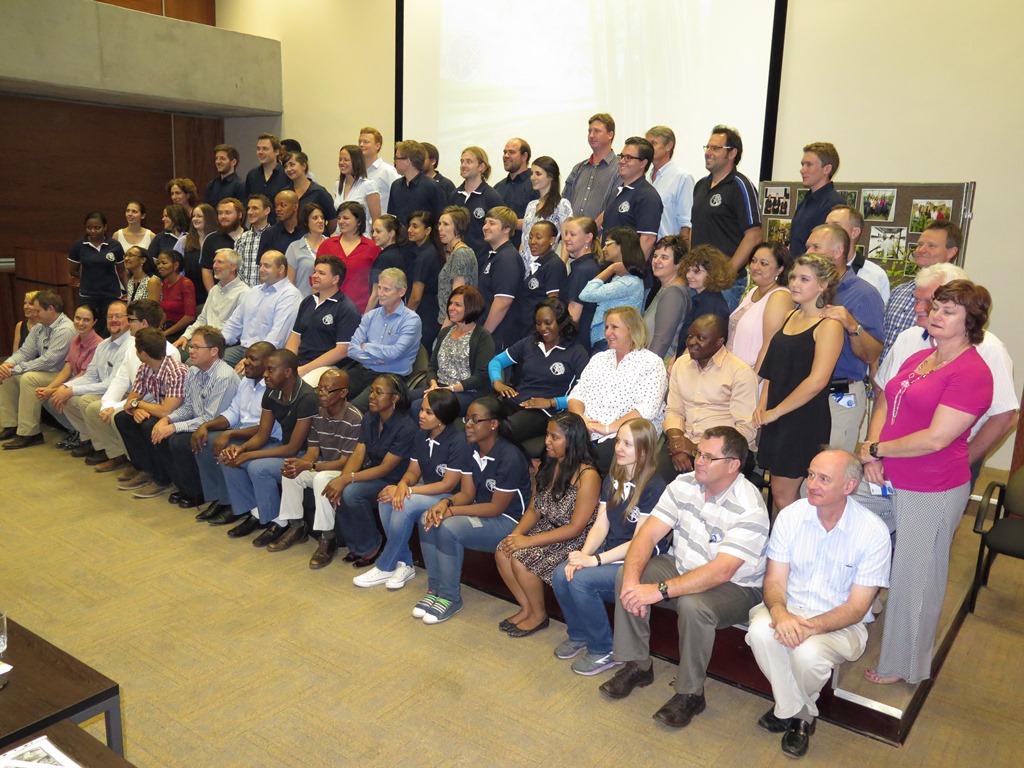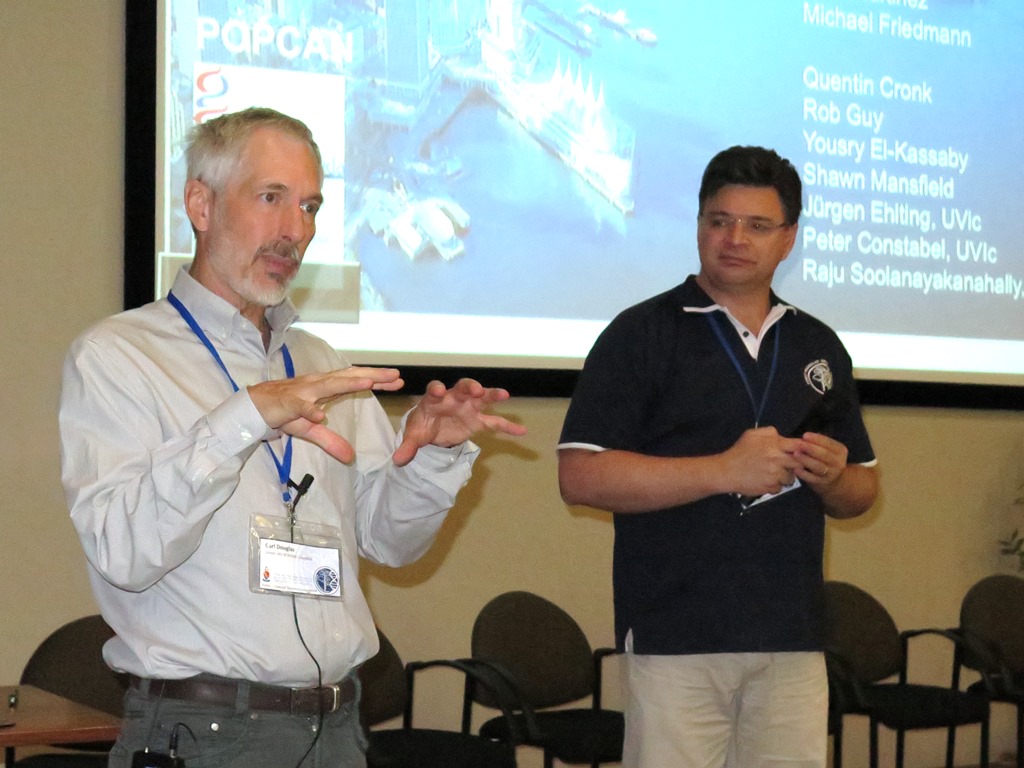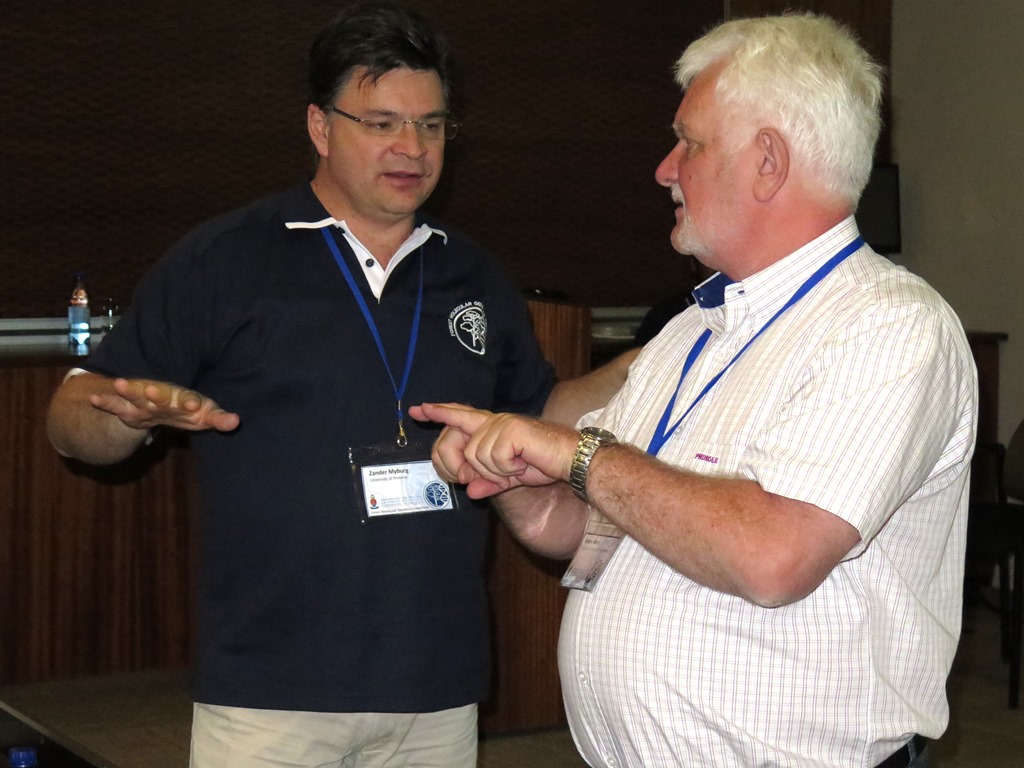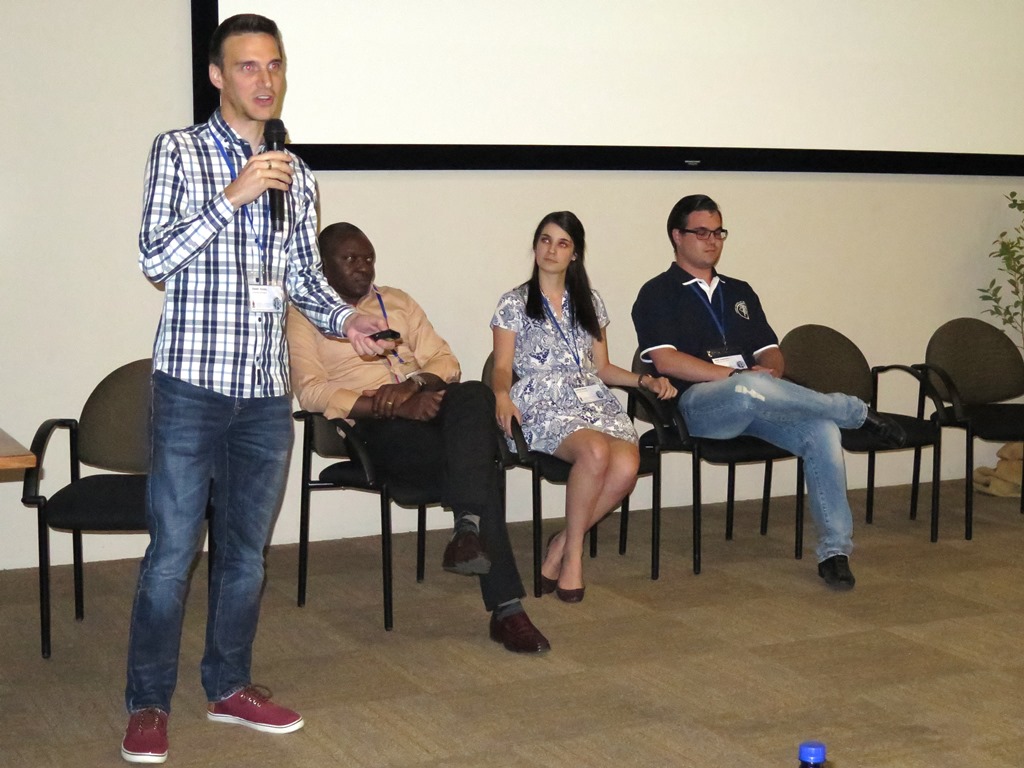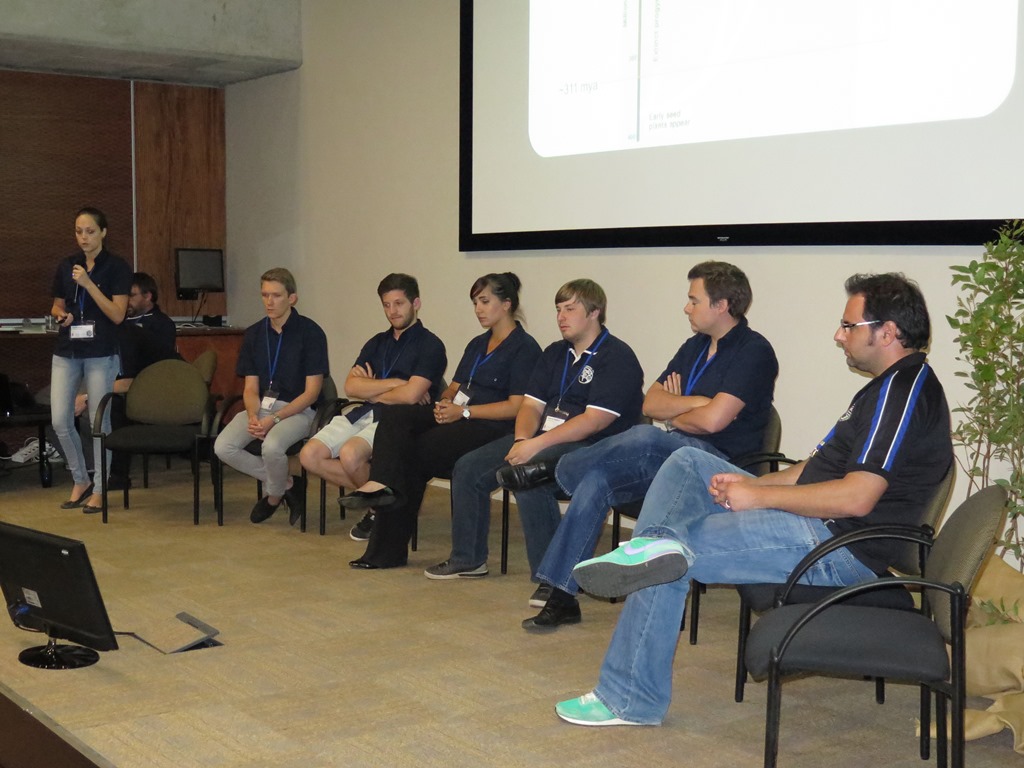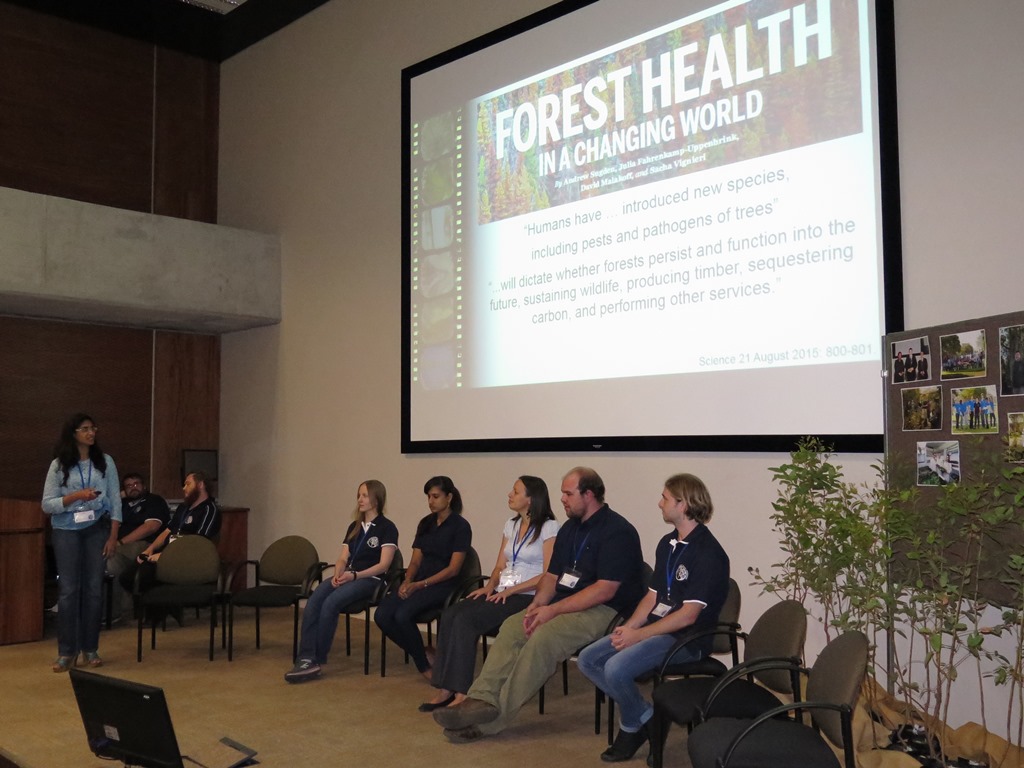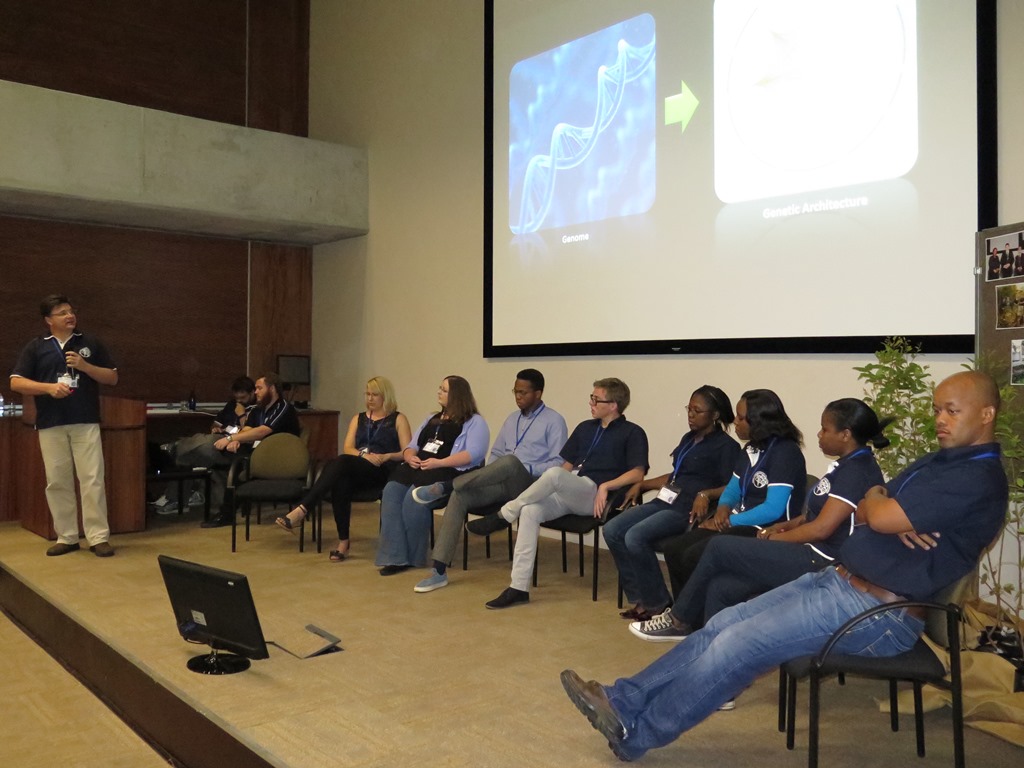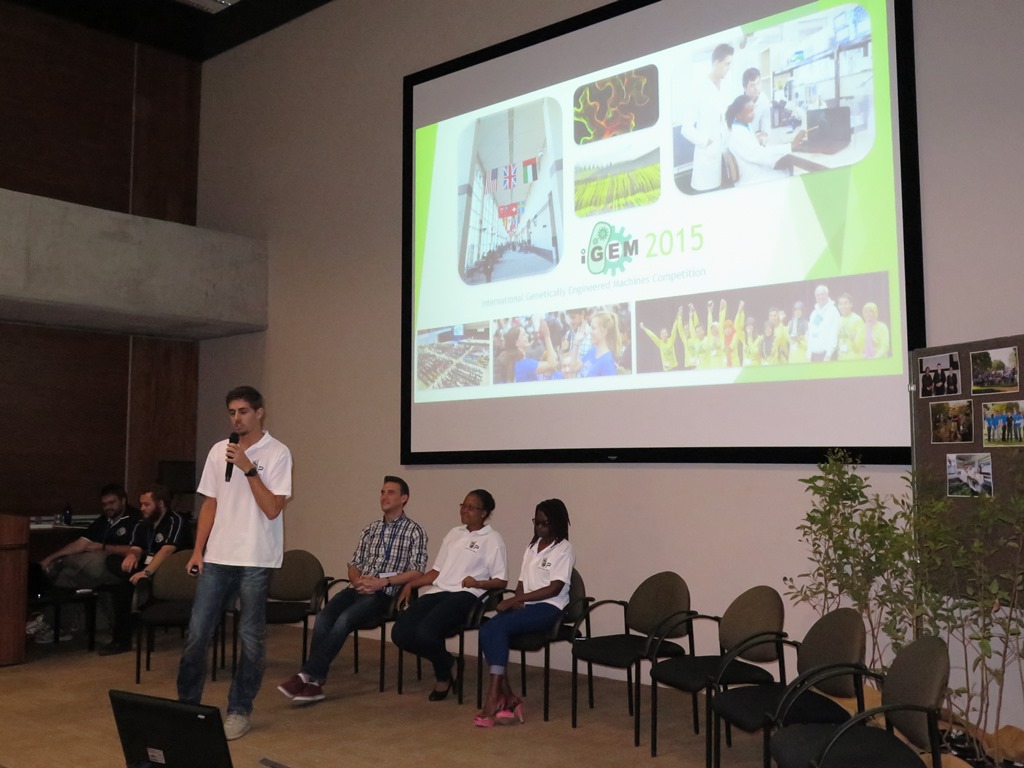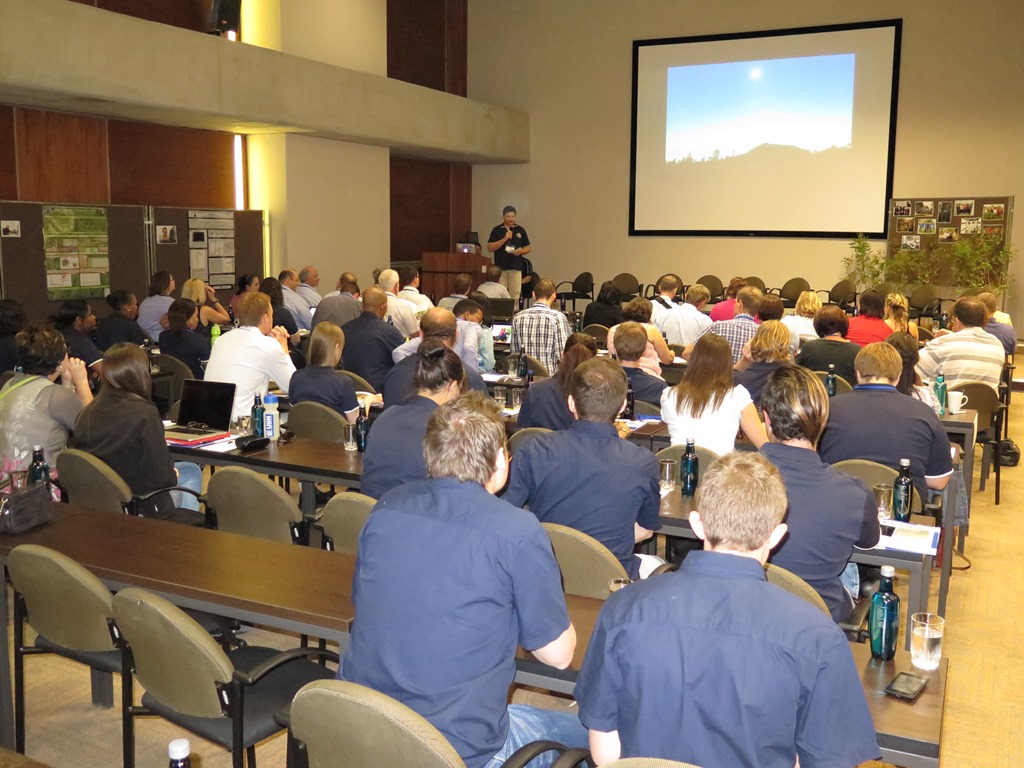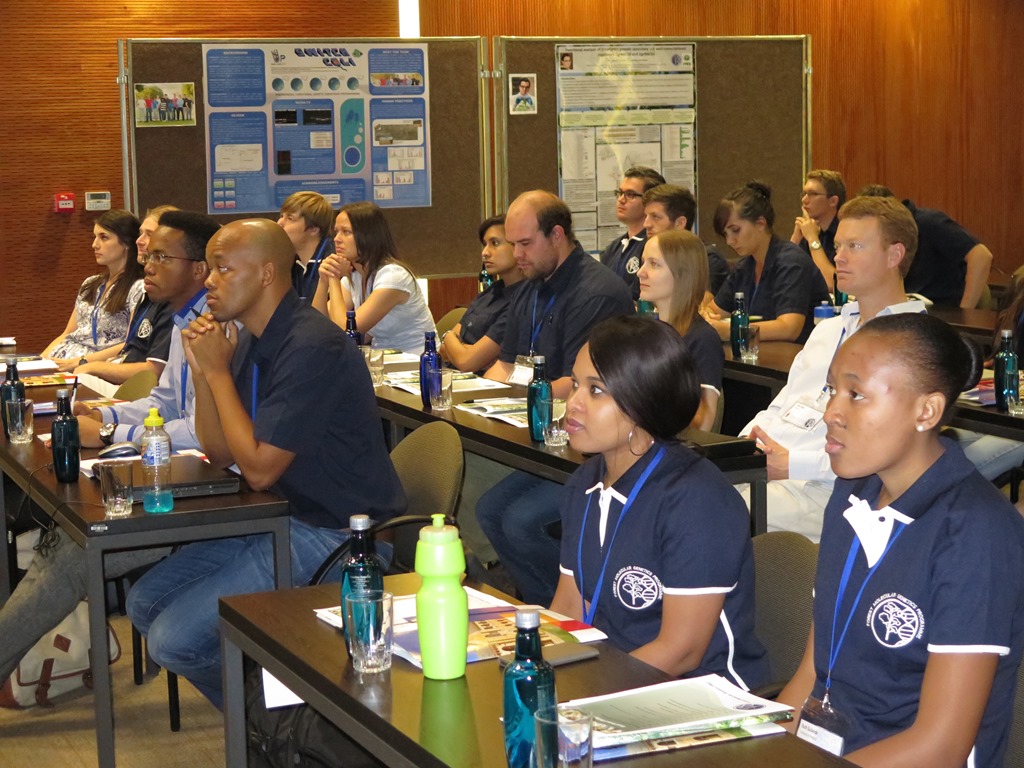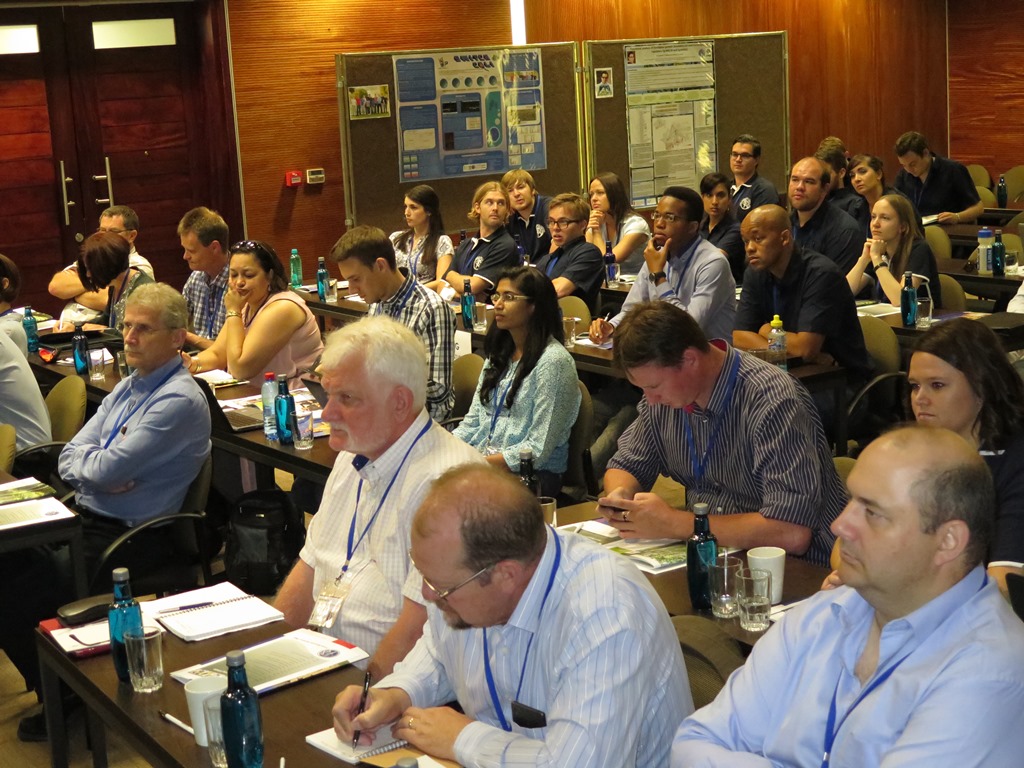FMG hosts its fourth annual research symposium at UP 2015-12-01
The fourth annual research meeting of the Forest Molecular Genetics (FMG) Programme was held at the University of Pretoria on November 25. The symposium is an opportunity to showcase research conducted within the programme to collaborators, funding bodies and industry role players. FMG is based at the Department of Genetics and is affiliated with the Forestry and Agricultural Biotechnology Institute (FABI) and the Genomics Research Institute.
FMG Director Prof. Zander Myburg opened the symposium and introduced the guests, which included: Prof. Carl Douglas of the University of British Columbia, the Director of the Department of Research and Innovation Support at UP, Dr Carol Nonkwelo, the head of the Department of Genetics, Prof. Paulette Bloomer, and Deputy director in Industry and Development at Department of Science and Technology (DST), Dr Ncebakazi Galada.
Prof. Myburg said the aim of the meeting was to expose knowledge and technology development within FMG and to make its research accessible to the public. Prof Douglas, who has been at UP on a sabbatical visit since October, delivered the plenary address titled: “Genomic approaches identify genes and gene variants underlying biomass quality and productivity in Populus”.
Members of the FMG management team, postdoctoral fellows and postgraduate students also presented their research in teams under different themes. These presentations were led by: included presentations by: Dr Steven Hussey on Transcriptional Regulation of Wood Formation, Dr Nanette Christie and Karen van der Merwe on Bioinformatics and Statistical Genomics, Dr Eshchar Mizrachi on Modelling Wood Formation, Dr Sanushka Naidoo on Eucalyptus and Pine Pathogen Interactions, and Prof. Myburg on Population Genomics and Molecular Breeding.
Members of Pretoria_UP 2015, a group of predominantly undergraduate students who represented UP at the International Genetically Engineered Machines (iGEM) Giant Jamboree in Boston, Massachusetts in September, also gave a presentation. The team, which won a bronze medal for their synthetic biology project “Switch-coli”, was one of two teams from Africa out of 280 that participated.


